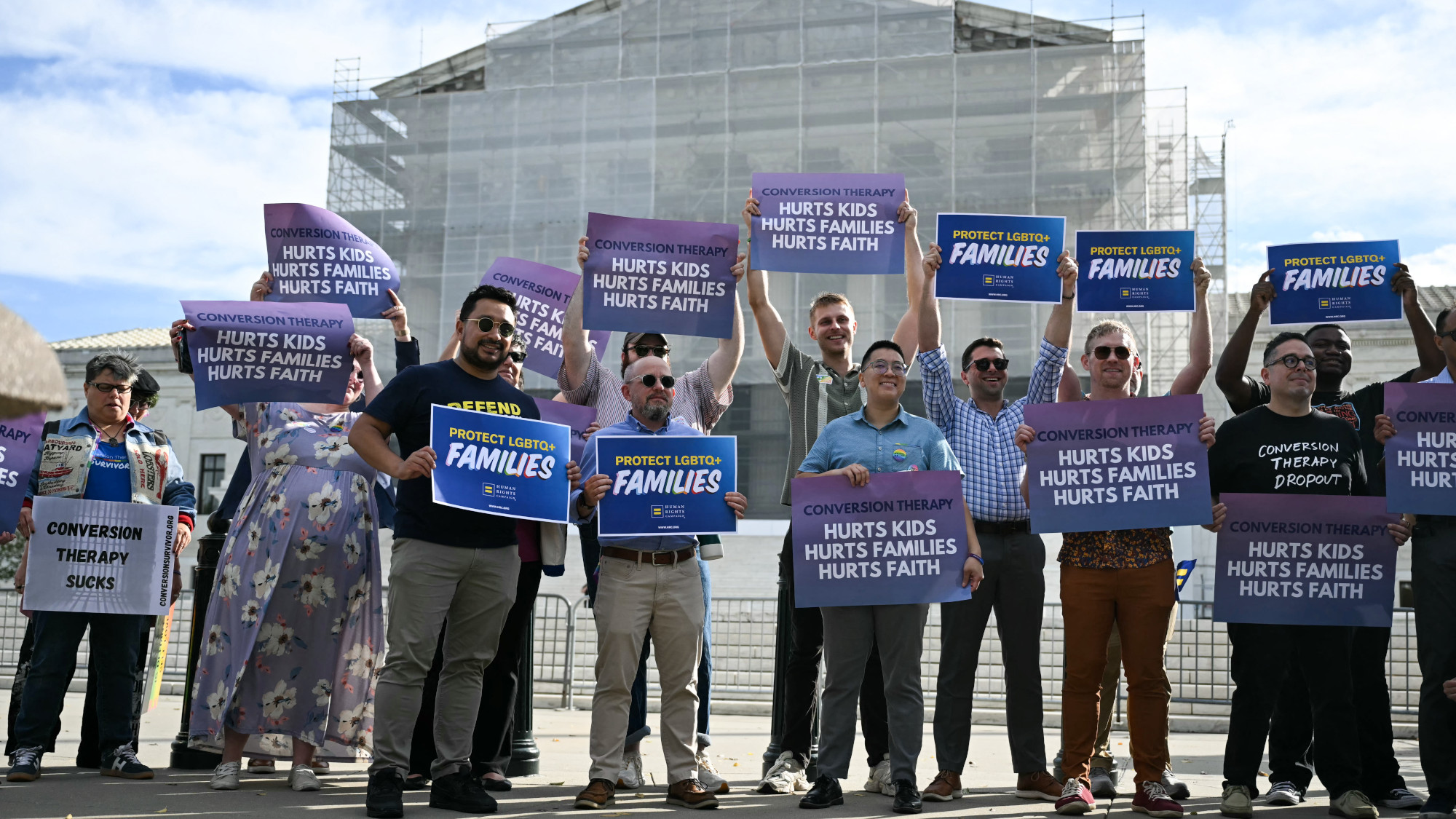Politics
Supreme Court Weighs Free Speech Against Conversion Therapy Ban

The Supreme Court recently examined the controversial issue of conversion therapy in the case of Chiles v. Salazar. This case arises from a challenge by Kaley Chiles, an evangelical Christian therapist, who argues that Colorado’s ban on conversion therapy for minors infringes upon her rights to free speech. The justices heard arguments regarding whether licensed therapists should be permitted to advise minors that they can change their sexual orientation.
Conversion therapy, which encompasses counseling aimed at altering sexual orientation or gender identity, has been widely discredited. Numerous studies indicate that such practices not only fail to achieve their intended outcomes but can also exacerbate feelings of depression and trauma among participants. Leading health organizations label conversion therapy as a form of child abuse, asserting that it lacks scientific validation and medical legitimacy.
The arguments presented before the court highlight a broader debate about the intersection of healthcare regulation and free speech. Justice Samuel Alito characterized the Colorado ban as “blatant viewpoint discrimination,” suggesting that if Chiles were a religious leader or a parent, she would be free to express views opposing a minor’s sexual identity. However, as a licensed therapist, her professional role imposes certain standards of care that must be adhered to.
The editorial board of National Review has expressed support for Chiles, asserting that the ban represents an abuse of state regulatory power. They argue that under Colorado law, therapists are restricted to promoting only gender transition and homosexuality, effectively silencing dissenting viewpoints. Elizabeth Nolan Brown from Reason echoed this sentiment, arguing that the prohibition of affirming therapies in conservative states would similarly violate free speech rights.
Legal scholars like Noah Feldman from Bloomberg emphasize the distinction between regulating medical practice and regulating speech. While therapists do utilize verbal communication in their work, they are expected to operate within established professional boundaries. The ongoing debate reflects a growing concern about the politicization of healthcare regulations and the need for evidence-based practices.
As of now, over 20 states have enacted bans on conversion therapy, including eight governed by Republican leaders. These regulations are positioned as protective measures for vulnerable populations. Nevertheless, the Supreme Court’s current trajectory, influenced by conservative justices, raises alarms about the potential reversal of such bans.
If conversion therapy is deemed protected speech, it could set a precedent affecting regulations across various professions, such as law and finance. Critics worry that allowing unregulated practices like conversion therapy could undermine professional standards and patient safety. The outcome of this case could have significant implications for the future of mental health care and the rights of both clients and practitioners.
As the nation awaits the court’s decision, the implications of this case extend far beyond individual rights, touching upon the core principles of healthcare ethics and the role of government in regulating medical practices.
-

 Science2 months ago
Science2 months agoInventor Achieves Breakthrough with 2 Billion FPS Laser Video
-

 Health2 months ago
Health2 months agoCommunity Unites for 7th Annual Into the Light Walk for Mental Health
-

 Top Stories2 months ago
Top Stories2 months agoCharlie Sheen’s New Romance: ‘Glowing’ with Younger Partner
-

 Entertainment2 months ago
Entertainment2 months agoDua Lipa Aces GCSE Spanish, Sparks Super Bowl Buzz with Fans
-

 Health2 months ago
Health2 months agoCurium Group, PeptiDream, and PDRadiopharma Launch Key Cancer Trial
-

 Top Stories2 months ago
Top Stories2 months agoFormer Mozilla CMO Launches AI-Driven Cannabis Cocktail Brand Fast
-

 Entertainment2 months ago
Entertainment2 months agoMother Fights to Reunite with Children After Kidnapping in New Drama
-

 World2 months ago
World2 months agoIsrael Reopens Rafah Crossing After Hostage Remains Returned
-

 Business2 months ago
Business2 months agoTyler Technologies Set to Reveal Q3 Earnings on October 22
-

 World2 months ago
World2 months agoR&B Icon D’Angelo Dies at 51, Leaving Lasting Legacy
-

 Health2 months ago
Health2 months agoNorth Carolina’s Biotech Boom: Billions in New Investments
-

 Health2 months ago
Health2 months agoYouTube Launches New Mental Health Tools for Teen Users









